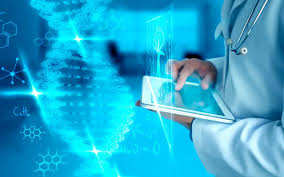Ph.D. in Biomedical Sciences: Introduction, Admission, Registration, Eligibility, Duration, Fees, Syllabus 2024

Introduction:
A Ph.D. in Biomedical Sciences opens doors to a world of exploration at the intersection of biology and medicine. This advanced degree program immerses students in the intricacies of biological systems, equipping them with the knowledge and skills to tackle complex health challenges. From dissecting cellular mechanisms to unraveling the mysteries of disease pathology, students engage in groundbreaking research that drives innovation and transforms healthcare. With access to state-of-the-art laboratories and renowned faculty mentors, Ph.D. candidates in Biomedical Sciences embark on a transformative journey of discovery, pushing the boundaries of scientific knowledge and unlocking new possibilities for improving human health.
Admission Process:
- Submit an online application including academic transcripts.
- Letters of recommendation from academic or professional sources.
- Statement of purpose outlining research interests and career goals.
- GRE scores (if required).
- Interview with faculty members.
Eligibility:
- A bachelor's or master's degree in a related field (biology, biochemistry, molecular biology, etc.).
- Strong academic background in biological sciences.
- Research experience in biomedical sciences is preferred.
Completion Time:
The completion time for a Ph.D. in Biomedical Sciences typically spans 4 to 6 years. This duration encompasses coursework, comprehensive exams, research, dissertation preparation, and defense. Students progress through various milestones at their own pace, guided by faculty advisors, and the complexity of their research projects may influence the timeline. Overall, the program offers a comprehensive and immersive experience that prepares graduates for diverse career paths in academia, industry, and healthcare.
Career Opportunities:
- Academic Researcher/Professor
- Biotechnology Industry Scientist
- Pharmaceutical Research Scientist
- Medical Science Liaison
- Government Regulatory Affairs Specialist
- Clinical Research Coordinator
- Healthcare Consultant
Syllabus:
- Advanced Cell Biology
- Molecular Genetics
- Bioinformatics
- Pharmacology
- Immunology
- Systems Biology
- Research Ethics
- Seminar Series
Internship Opportunities:
- Collaborations with industry partners.
- Research internships at academic institutions.
- Clinical research placements at hospitals or research centers.
Scholarship and Grants:
- Institutional fellowships and assistantships.
- Research grants from government agencies (NIH, NSF, etc.).
- External funding opportunities from foundations or industry sponsors.
FAQs:
Can I apply with a bachelor's degree?
Most programs require at least a bachelor's degree, but some may accept exceptional candidates directly into the Ph.D. program.
Are there opportunities for teaching experience?
Yes, many programs offer teaching assistantships to Ph.D. students, providing valuable experience in classroom instruction and mentoring.
What support services are available for Ph.D. students?
Students have access to academic advising, career development resources, research facilities, and professional development workshops to support their academic and career goals.
